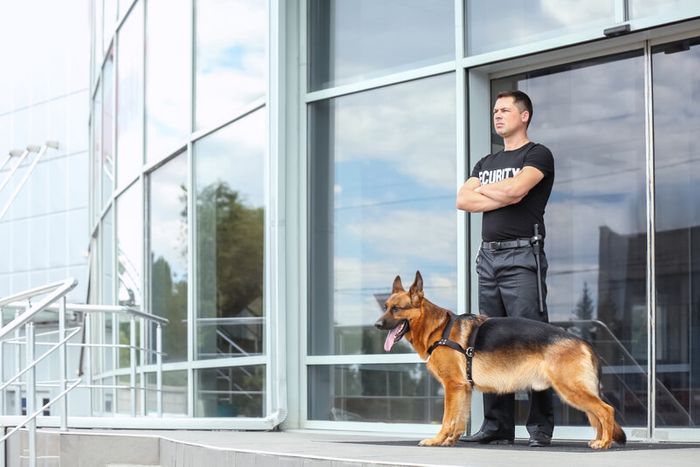
- September 5, 2023
- |security guard company
- | 0
- 413
Upholding the Law –
In the realm of security services, security guards are entrusted with the vital responsibility of safeguarding people, property, and assets. However, it is crucial to recognize that the authority bestowed upon security guards is not unlimited. There are legal limitations in place to ensure that their actions are conducted within the boundaries of the law and respect individuals’ rights.
At XPressGuards, we prioritize not only the safety and security of our clients but also the adherence to legal standards. In this article, we will explore in-depth the legal limitations of a security guard’s authority to promote responsible and ethical security practices.
Understanding the Legal Framework
The authority of security guards is primarily governed by federal, state, and local laws, as well as specific regulations imposed by their employers. It is essential for security guards to have a comprehensive understanding of these legal frameworks to ensure their actions remain lawful.
1. Lack of Arrest Authority
Security guards do not possess the same arrest authority as law enforcement officers. While some states may grant limited arrest powers to security guards, these powers are typically restricted to situations where they personally witness a crime taking place. Even then, the use of arrest powers must be carefully exercised, and the individual’s rights must be respected.
2. No Search Warrants
Security guards do not have the authority to obtain or execute search warrants. A search warrant is a legal document issued by a judge that allows law enforcement officers to search a specific location or seize evidence. Security guards must rely on the consent of individuals or property owners to conduct searches within legal boundaries.
3. Use of Force Limited by Law
Security guards must exercise restraint when it comes to the use of force. While they are trained to use force when necessary, it must be proportionate to the threat and justifiable under the circumstances. Excessive force can lead to legal consequences, including criminal charges and civil lawsuits.
4. Bound by Property Rights
Security guards’ authority is often tied to the property they are hired to protect. They can enforce property rules and regulations, such as entry requirements or dress codes, but only within the scope defined by the property owner or management.
5. No Authority to Detain Unlawfully
Security guards cannot detain individuals without legal justification. Detainment typically requires reasonable suspicion that a crime has been or is being committed, and even then, it is typically within the jurisdiction of law enforcement authorities to make arrests and detain individuals.
6. Limited Scope of Jurisdiction
Security guards’ authority is typically limited to the premises they are responsible for protecting. They do not have jurisdiction or authority outside of these specific areas. Any actions taken beyond these boundaries may be outside the scope of their authority and could have legal consequences.
7. Cannot Issue Legal Citations or Tickets
Security guards do not have the authority to issue legal citations or tickets. While they can report incidents to law enforcement and provide witness statements, it is law enforcement officers who are authorized to issue citations or tickets for legal violations.
Best Practices for Security Guards
At XPressGuards, we emphasize the importance of responsible and ethical security practices, which are rooted in a clear understanding of the legal limitations of security guards’ authority. To ensure our security personnel uphold these principles, we adhere to the following best practices:
1. Continuous Training: Our security guards receive ongoing training in conflict resolution, de-escalation techniques, and the legal framework governing their authority. This training helps them make informed and lawful decisions.
2. Communication and De-escalation: Security guards are trained to prioritize communication and de-escalation techniques to defuse potentially volatile situations without resorting to force.
3. Respect for Individuals’ Rights: We emphasize the importance of respecting individuals’ rights at all times. Security guards are trained to maintain professionalism and treat all individuals with dignity and respect.
4. Documentation: Security guards are required to maintain thorough documentation of incidents, including the reasons for actions taken, the individuals involved, and any relevant details. This documentation ensures transparency and accountability.
5. Cooperation with Law Enforcement: When law enforcement intervention is necessary, our security guards cooperate fully with local authorities and provide any necessary assistance.
Security guards play a crucial role in maintaining safety and security in various environments, and their authority is not without limitations. Understanding the legal boundaries of their authority is essential to ensuring responsible and ethical security practices.
At XPressGuards, we are committed to upholding the highest standards of professionalism and ethics in our security services. By adhering to legal limitations, respecting individuals’ rights, and promoting transparency and accountability, we can fulfill our mission of providing effective security services while safeguarding the rights and dignity of all individuals involved. Contact us to learn more.



